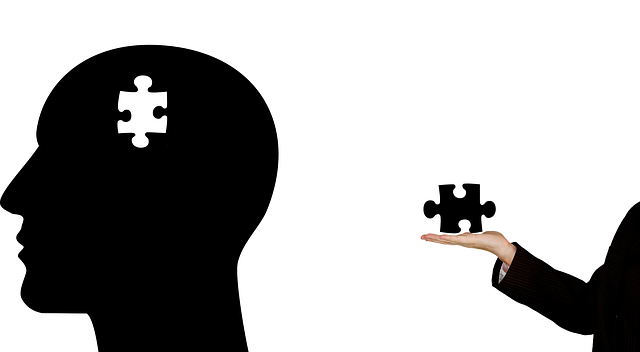In today's diverse communities, Centennial Anger Management Therapy (CAMT) emphasizes cultural sensitivity in mental healthcare by recognizing and respecting clients' unique backgrounds, beliefs, and practices. By incorporating inclusive practices, CAMT creates safe spaces, improves communication, enhances therapeutic outcomes, and offers personalized interventions tailored to individual expressions of anger. This approach benefits both individual clients and communities, ensuring accessible and sensitive mental health services for all. Through strategies like mental wellness journaling, culturally relevant resources, and education on diverse communities' challenges, therapists build trust, foster open communication, and create supportive environments that promote emotional well-being and effective treatment.
In today’s diverse society, cultural sensitivity in mental healthcare is paramount. The field must adapt to navigate the unique needs of individuals from various backgrounds, ensuring equitable access to effective treatment. This article explores these nuances, delving into the impact of unaddressed cultural sensitivity on therapy outcomes and highlighting innovative approaches like Centennial Anger Management Therapy as models for culturally responsive practice. We also offer practical strategies to enhance clinical cultural competence and emphasize building trust through sensitivity for improved patient care.
- Understanding Cultural Diversity in Mental Healthcare
- The Impact of Unaddressed Cultural Sensitivity on Therapy Outcomes
- Centennial Anger Management Therapy: A Case for Culturally Responsive Practice
- Strategies to Enhance Cultural Competence in Clinical Settings
- Building Trust and Effective Treatment Plans Through Cultural Sensitivity
Understanding Cultural Diversity in Mental Healthcare

In the ever-evolving landscape of mental healthcare, understanding cultural diversity is no longer a consideration but a necessity. With communities becoming increasingly diverse, it’s crucial for therapists and counselors to appreciate the impact of cultural backgrounds on mental health experiences and treatment outcomes. This involves recognizing that every client enters therapy with a unique set of beliefs, values, and practices shaped by their heritage. For instance, in a country like the United States, where immigrants from various countries reside, mental healthcare professionals must be adept at navigating the intricate web of cultural differences.
Centennial Anger Management Therapy, for example, can benefit greatly from incorporating compassion cultivation practices that respect and embrace clients’ diverse backgrounds. By understanding cultural nuances, therapists can create a safe and inclusive environment, fostering open communication and effective treatment. This approach not only enhances therapeutic outcomes but also encourages self-care practices and stress management workshops within the organization, ensuring that mental healthcare remains accessible and sensitive to all communities it serves.
The Impact of Unaddressed Cultural Sensitivity on Therapy Outcomes

In the realm of mental healthcare, cultural sensitivity is a game-changer that can significantly impact therapy outcomes. Unaddressed cultural differences in therapy sessions can lead to miscommunication and a lack of understanding between the therapist and client, especially when dealing with diverse populations. For instance, what might be considered anger management issues in one cultural context could be rooted in stress management or conflict resolution techniques uniquely understood within another culture. Centennial Anger Management Therapy, for example, must consider the underlying social and cultural factors that shape an individual’s expression of anger to offer effective interventions.
When therapists fail to recognize these nuances, it can hinder progress and even cause harm. Cultural sensitivity allows for a more tailored approach, ensuring that clients receive treatment aligned with their beliefs, values, and experiences. This is particularly crucial in diverse communities where various ethnic, racial, and socioeconomic backgrounds coexist. By incorporating mental health education programs designed with cultural awareness in mind, such as those focused on stress management and conflict resolution techniques, therapists can foster a safe and supportive environment, ultimately enhancing therapeutic outcomes.
Centennial Anger Management Therapy: A Case for Culturally Responsive Practice

In the realm of mental healthcare, providing culturally responsive services is paramount to ensuring effective treatment and fostering positive outcomes for diverse populations. This concept is especially relevant when addressing issues such as anger management, which often require tailored approaches that resonate with individual cultural backgrounds. Centennial Anger Management Therapy (CAMT) emerges as a compelling framework that respects and incorporates cultural nuances, making it a powerful tool in the pursuit of mental wellness.
CAMT recognizes that anger, while a universal human emotion, is expressed and managed differently across cultures. By embracing this diversity, therapists can create a safe and inclusive environment for individuals from various ethnic and social backgrounds. For instance, CAMT may incorporate cultural storytelling, community engagement, or specific relaxation techniques to help clients manage anger in ways that align with their personal and communal values. This culturally sensitive approach not only aids in depression prevention but also promotes self-esteem improvement by empowering individuals to navigate their emotions in culturally affirming ways.
Strategies to Enhance Cultural Competence in Clinical Settings

In enhancing cultural competence within clinical settings, mental healthcare providers can employ various strategies to ensure they offer effective and sensitive support. One key approach is mental wellness journaling exercise guidance. Encouraging clients to document their thoughts and experiences in a structured journal can facilitate self-reflection and provide valuable insights into their cultural perspectives and personal histories. This practice not only promotes emotional well-being but also helps therapists understand the client’s unique context, including any trauma support services they may have previously accessed or required.
Additionally, incorporating culturally relevant resources and educating oneself about diverse communities’ specific mental health challenges is essential. Therapists can benefit from learning about the historical, social, and economic factors influencing their clients’ lives. For example, understanding the impact of systemic racism or cultural taboos around mental health can shape therapy sessions. Strategies such as these foster an environment where clients feel seen, heard, and respected, ultimately enhancing the effectiveness of Centennial Anger Management Therapy and other treatment modalities.
Building Trust and Effective Treatment Plans Through Cultural Sensitivity

In today’s diverse society, cultural sensitivity is an essential aspect of mental healthcare practice. It forms a crucial foundation for building trust between therapists and clients from different backgrounds. By understanding and appreciating cultural differences, therapists can create a safe and supportive environment that encourages open communication. This, in turn, enables clients to explore their emotional experiences and challenges more freely, leading to effective treatment plans tailored to their unique needs.
At Centennial Anger Management Therapy, we emphasize the importance of cultural sensitivity in our approach to mental health care. By integrating this perspective into our services, we aim to facilitate meaningful change and promote inner strength development for all individuals. We recognize that emotional regulation is often influenced by cultural contexts and beliefs. Thus, our therapists receive specialized training to navigate these nuances, ensuring that treatment plans not only address specific mental illnesses but also foster stigma reduction efforts within the framework of each client’s cultural tapestry.
Cultural sensitivity is no longer a consideration—it’s an essential component of effective mental healthcare. As demonstrated by the success of culturally responsive practices like Centennial Anger Management Therapy, understanding and addressing cultural diversity directly impacts therapy outcomes. By implementing strategies to enhance cultural competence, such as building trust and tailoring treatment plans to individual needs, mental health professionals can create inclusive environments that foster healing and positive outcomes for all clients.









